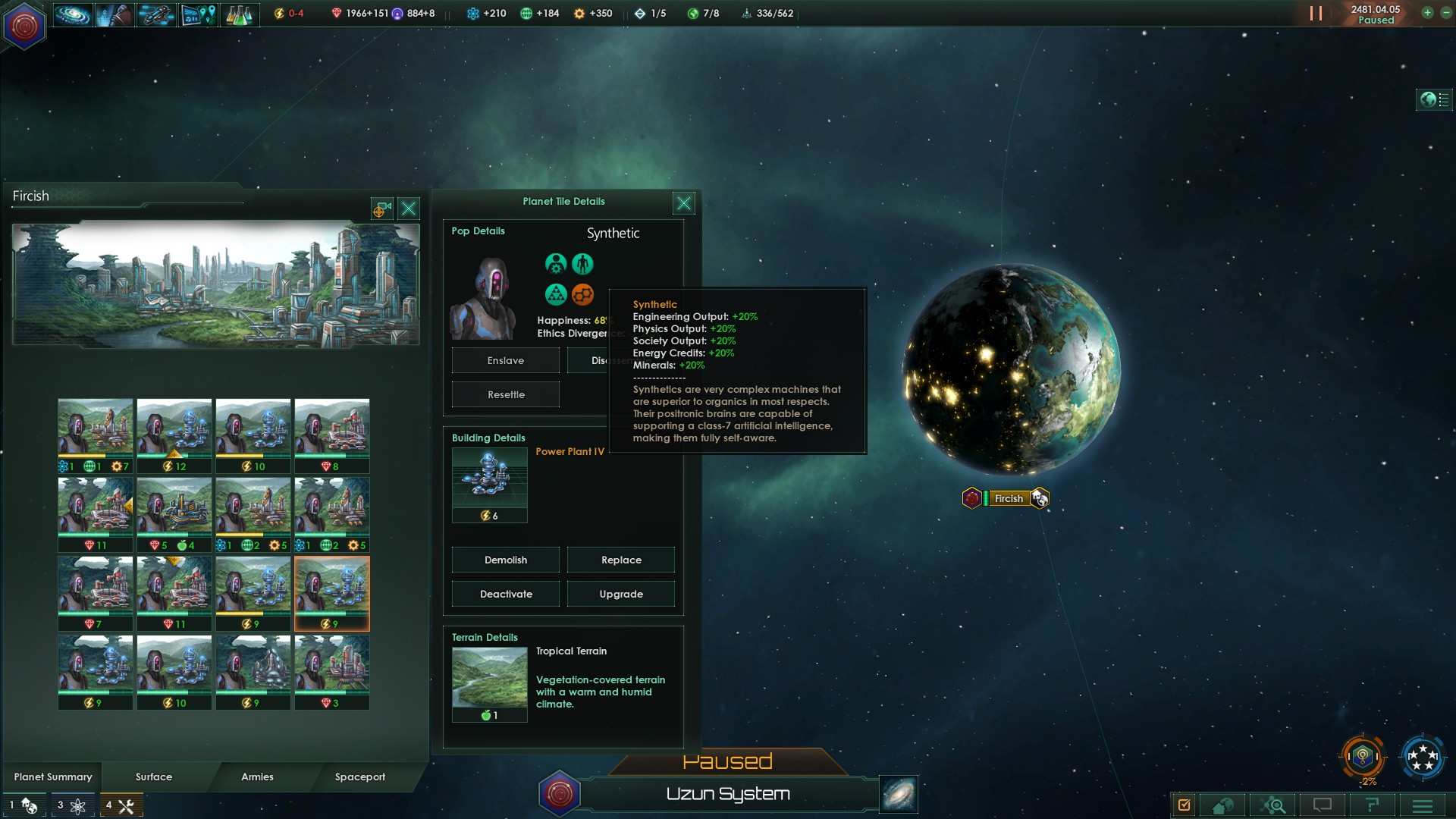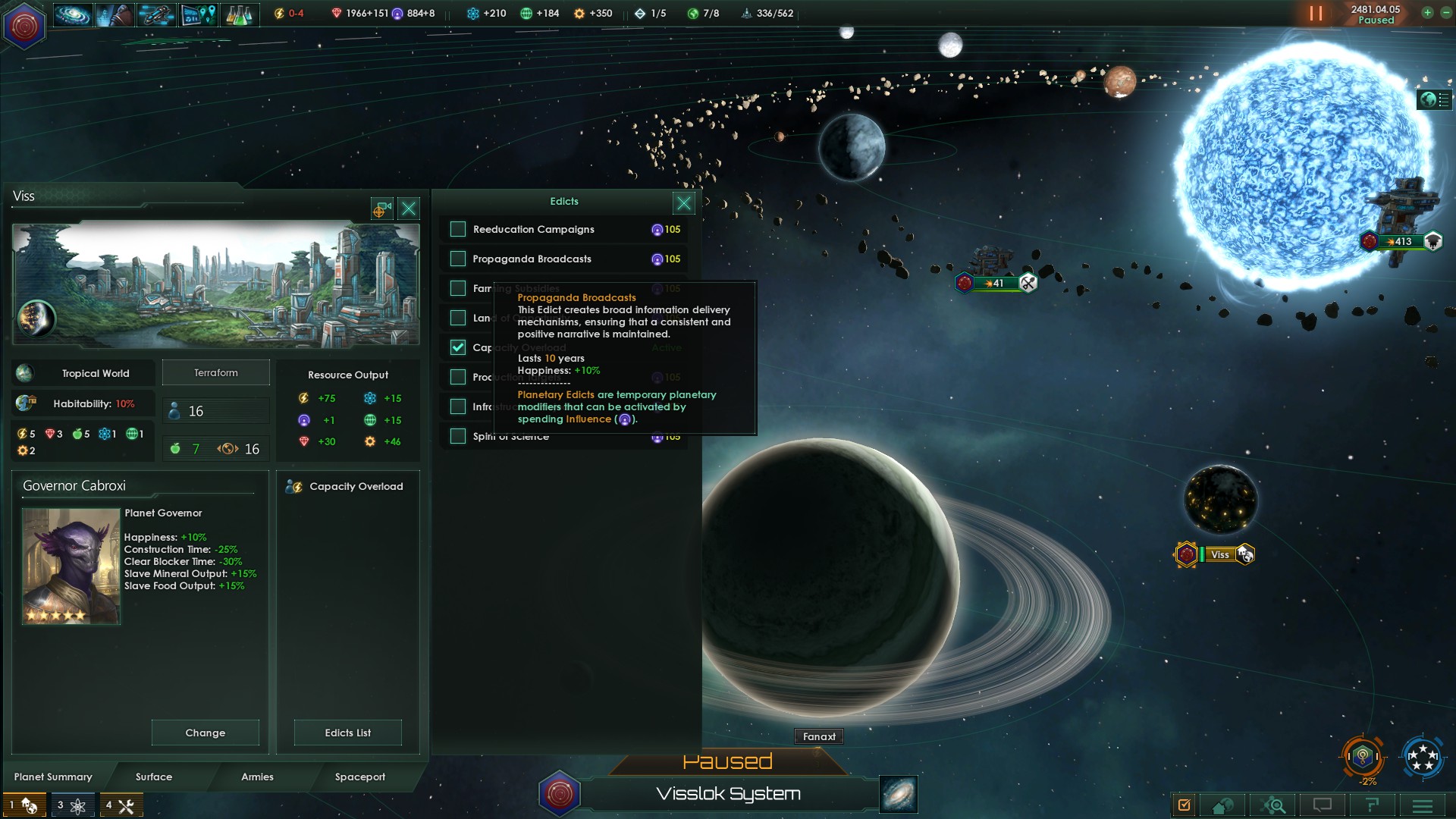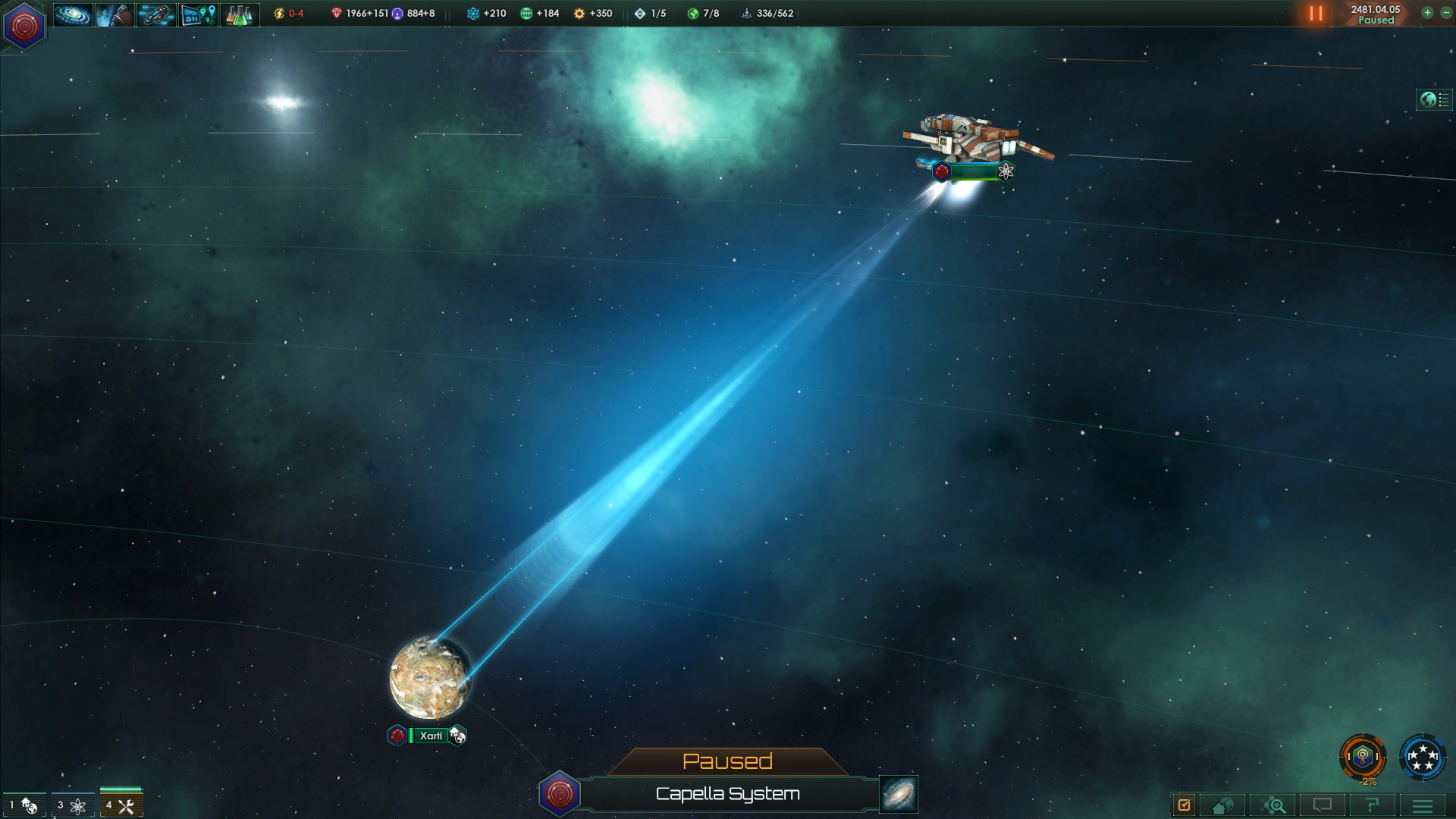
Know the hidden effects of your ethos
While the empire designer will tell you the basic effects of the ethos you pick, it won’t tell you that it has an effect on which government policies you can pass and even which tech cards you’re likely to draw. These aspects of your civilization are far from flavor text.
Militarists can make use of full planetary bombardment, allowing you to conquer worlds faster and deal huge infrastructure damage to those you don’t plan to take over. They also have a much higher chance of drawing new weapon tech cards, whereas Pacifists will prioritize almost everything else over shinier guns. In return, Pacifists are heavily weighted to draw advanced food-producing techs.
Materialists have a much higher chance to draw techs relating to robots and AI, whereas Spiritualists almost never will. On the flip side, Spiritualists are much more likely to develop psionic tech, which is extremely uncommon for everyone else.
Collectivists can happily enslave or purge pops without causing too much of a ruckus, and are more likely to draw techs relating to genetic modification and mind control. Individualists are more likely to unlock tech relating to eugenics, the spirit of exploration, and benefitting from the spoils of a hyper-capitalist, hyper-consumerist society.
Xenophobes will be very tolerant of mistreating other species, but don’t get much in the way of tech benefits. Xenophiles, on the other hand, will expect you to be nice to everyone. In return, they’ll be more likely to unlock tech relating to studying and practicing diplomacy with aliens (including the ability to allow alien leaders in your empire).

Manage your influence
It’s very tempting to spend all of your early influence on Frontier Outposts to snatch as much space as possible before your competitors do. Resist this urge, as influence is very important for recruiting leaders, relocating pops from world to world, and influencing election cycles if you have a democratic government. Society tech and declaring rivalries are the best ways to boost influence early on, and being in an alliance will act as a drain (especially if you’re Militarist).
Only use Frontier Outposts if you can strategically block off an area of space with one or two of them, and to lock down important resources in contested territory. Once you get the tech to colonize a planet in a system with an outpost, be sure to dismantle it as the planetary colony will give you more border push in the long run.
Keep up to date with the most important stories and the best deals, as picked by the PC Gamer team.
In the late game, you may have the opposite problem and find yourself frequently influence capped. The best way to dump large amounts so it doesn’t go to waste is to enact planetary edicts on your most developed worlds. Production Targets and Capacity Overload are great buffs if you’re hurting for minerals or energy, respectively. Reeducation Campaigns can be very effective at suppressing those annoying pacifist pops who don’t like the fact that you just blew up a trillion mushroom people on Euronymus V.

Never stop exploring
It’s easy to get tricked into thinking the exploration/anomaly phase of the game is over once everyone’s borders are crammed against each other. You’re doing yourself a huge disservice if you fall into that trap! One of the best parts about Stellaris is discovering all of the awesome events and quest chains that come from sending your science ships to Boldly Go, and there is a lot of space to Boldly Go to outside your political neighborhood.
Opening up this space to exploration is going to require one of two strategies: buddy up to your neighbors and ask for civilian access… or conquer everything and declare that your scientists can go wherever they damn well please, on pain of lasery death for anyone who bars their way. As long as there are systems out there you have yet to survey, don’t let your desire for discovery sit idle. Only the truly dedicated and intrepid will uncover the deepest mysteries hiding among the stars.
Len Hafer is a freelancer and lifelong PC gamer with a specialty in strategy, RPGs, horror, and survival games. A chance encounter with Warcraft 2: Tides of Darkness changed her life forever. Today, her favorites include the grand strategy games from Paradox Interactive like Crusader Kings and Europa Universalis, and thought-provoking, story-rich RPGs like Persona 5 and Disco Elysium. She also loves history, hiking in the mountains of Colorado, and heavy metal music.

